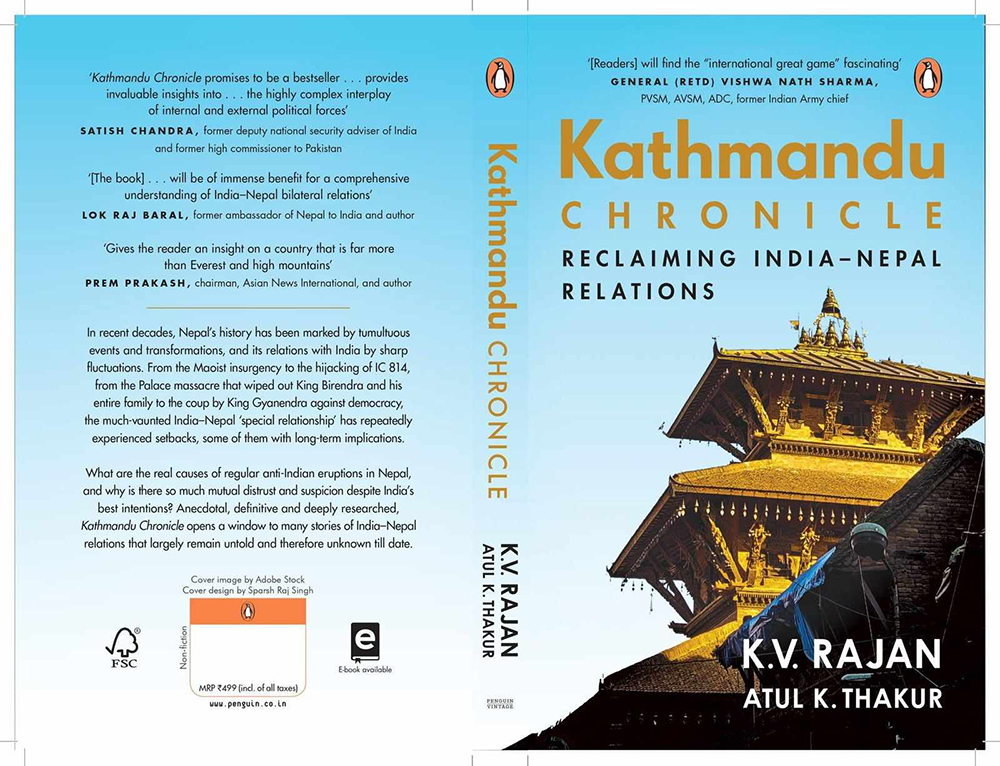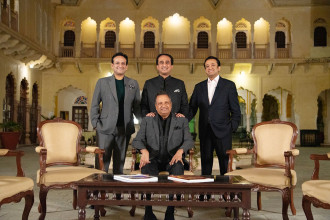
KATHMANDU: The book 'Kathmandu Chronicle: Reclaiming India-Nepal Relations', penned by K V Rajan, former Indian Ambassador to Nepal, and Atul K Thakur, is slated for launch on April 30, 2024.
Rajan, who previously served as a secretary at India's Ministry of External Affairs, and Thakur, a distinguished policy professional, columnist and writer, have presented insights on Nepal's turbulent history and the prospects for Nepal and its enduring yet intricate ties with India.
The book offers a comprehensive account of significant elements of Nepal’s democratic movements, its transformation from an absolute monarchy to a federal democratic republic, and from a Hindu state to a secular one. It discusses the Maoist insurgency, the drafting of a new constitution, its foreign policy decisions, China's growing influence, and most importantly, Nepal-India relations.
Published by Penguin Random House India, the book merges first-hand experience with extensive research to cast new light on pivotal events including the hijacking of IC 814, the Palace Massacre that annihilated King Birendra and his entire family, the coup by then King Gyanendra against democracy, and elucidates why the much-vaunted Nepal-India ‘special relationship’ has repeatedly encountered setbacks, some with long-term consequences.
Drawing on thorough analysis and new resource materials, the book is not only crucial in explaining the hows and whys of the past but also due to its pertinence to the geopolitical uncertainties of the post-Covid world. As India asserts its ambitions on the global stage, and China and other major countries elevate their own profiles in the region, both at the governmental level and within civil society, Nepal and India urgently need to reconcile with the past, comprehend the unique challenges and opportunities presented by the current situation, and ‘repurpose’ their relationship if it is to realise its exceptional potential in the forthcoming years.
Rajan, who remains India's longest-serving ambassador to Nepal to this day, stated, “India and Nepal must learn from the past but not dwell in it. They can construct a model cooperative relationship for the needs and expectations of future generations, building on their unique common civilisational ties combined with fresh mindsets and innovative approaches.”
Thakur, a seasoned Nepal scholar, public intellectual and co-author, remarked, “Numerous books on Nepal and its relations with India have been authored by scholars and foreign policy practitioners, both Nepali and Indian nationals. However, many questions about the hows and whys of the past, the depth and challenges of current trends, and prospects for the future, in an increasingly uncertain post-Covid world, remain unanswered.
Premanka Goswami, Associate Publisher, Vintage & Head, Backlist, Penguin Random House India, commented, “Historically and culturally, India and Nepal have shared a special relationship. However, this relationship has seen its share of highs and lows. What are the reasons for these issues? Why is there so much mutual distrust between the two nations? The book authored by Rajan and Thakur sheds light on many aspects of the Nepal-India relationship that have largely remained untold and therefore unknown until now. We’re delighted to publish the book under Penguin.”








